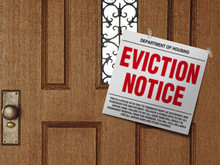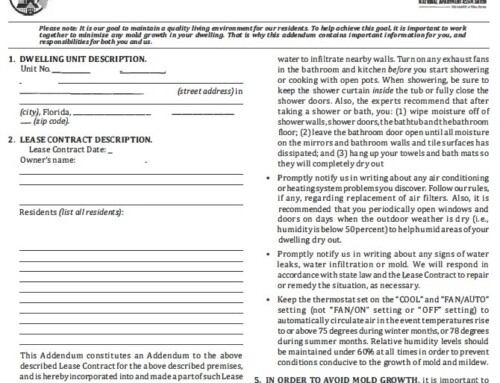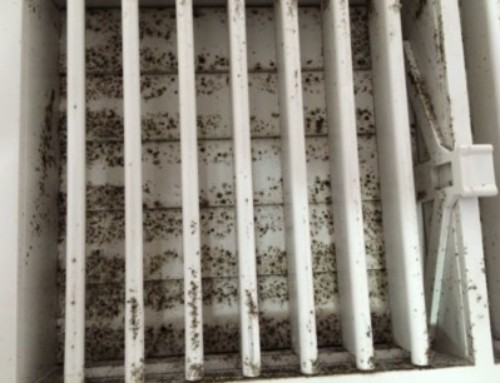Mold lawyer Matthew Militzok successfully defended an eviction action brought by the landlord of a home against the tenants. Prior to the landlord filing the eviction, the tenants had put the landlord on written notice that the property did not meet minimum housing standards due to the on-going and substantial roof leaks and the rampant growth of toxic black mold in the property. When the tenants withheld rent after the landlord refused to fix the issues with the home, the landlord posted a 3-day notice to pay rent or vacate. When the tenants refused to do either, the landlord decided to sue the tenants for eviction. After depositing the disputed rent money into the court registry, as required by Florida Statutes section 83.60(2), the Court held a trial on whether the tenants should be evicted. At trial, the Court found that the tenants proved that the landlord failed to maintain the property at least to minimum housing standards as a result of the roof leaks, toxic black mold and rodent infestation. The Court found that the landlord failed to maintain minimum housing standards in accordance with Florida Statute section 83.51(1)(b). In addition, since the property was cited for several housing violations by the city in which it was located, the Court found that the property had “no rental value” and ordered all money in the court registry to be refunded to the tenants. Finally, the Court declined to enter an eviction judgment against the tenants.
Sending a Written Notice to the Landlord is the Key
It is very important that you give the landlord the notice as required in your lease. We recommend that you send the letter to the landlord by certified mail to ensure that it was delivered. It is fine to send the letter in other ways such as e-mail or text in addition to the certified letter. We recommend that you use this form when giving the landlord the written notice. It is very important to be a specific as possible when providing the landlord with written notice. Vague or non-specific notices may not hold up in court. We recommend that you specifically identify which room the mold is located in, and which wall or walls the mold is on. Use directional words such as “north wall” or “east wall” so that there is no confusion as to where the mold is location. The mold attorneys at Militzok & Associates is available to assist tenants in properly preparing the written notice to cure.
How to fight an eviction action due to mold?
It is best to contact an attorney before the eviction begins. The reason for this is that once you are served with a 3-day notice, it is too late to provide a written notice to the landlord describing the defects in the property. If you are being evicted by your landlord and the property has water leaks and toxic black mold growing in the property, contact the mold attorneys at Militzok & Associates. Time is of the essence in eviction actions as tenants are only entitled to five business days to file a response in court. The failure to file a legally sufficient response along with depositing the disputed rent into the court registry usually results in an automatic eviction.







Leave A Comment